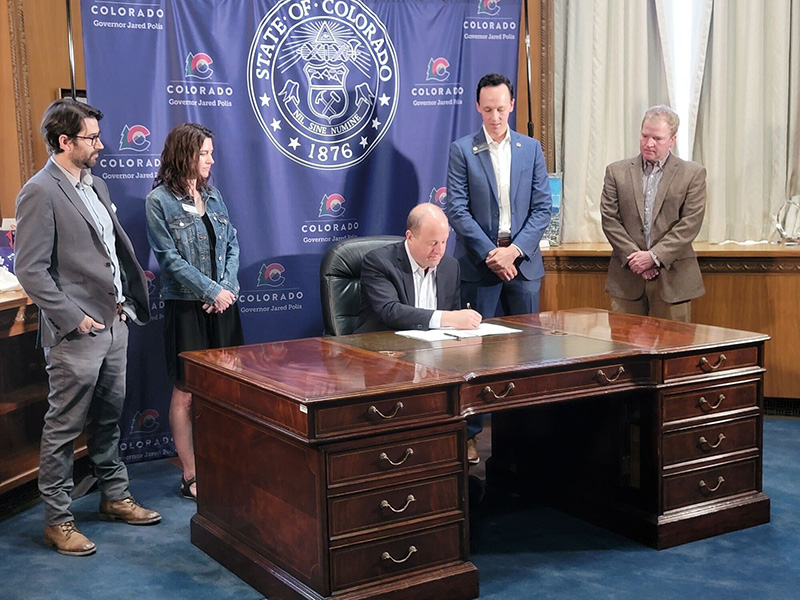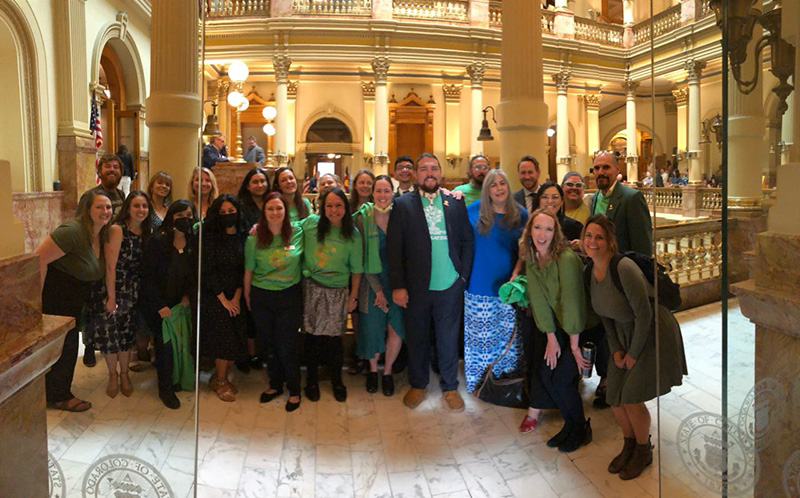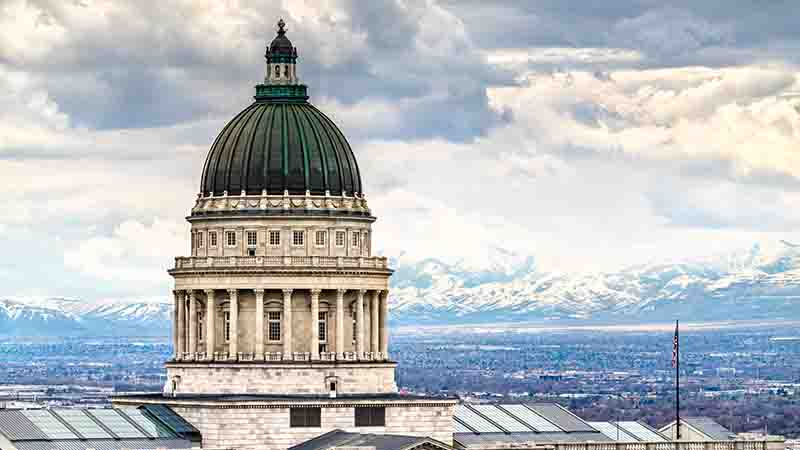August 1, 2022
The 2022 legislative sessions recently wrapped up across the West! Our team of experts was busy this year, drafting, tracking and advocating for bills that would allow states to tackle climate change and its impacts.
We work at the state level because that’s where many of the most significant decisions for our region are made. Western states can lead the way toward important goals like slashing carbon emissions, ensuring healthy rivers even in a warming climate, safeguarding air and water quality, and protecting Western land.
This year, WRA, along with our supporters, advocates, and coalition partners, advanced legislation that will make a difference as the West faces the climate crisis. Each of these measures will help create a healthy and equitable future for our region.
Below, I’ll share some highlights from our legislative efforts across the issues we work on.
Healthy Rivers & Water Conservation
States across the West took action to ensure healthy rivers as our climate becomes warmer and drier.
In Utah, WRA advocated for three bills to protect waterways:
- House Bill 121, which proposed important water conservation measures such as incentives for replacing turf with drought-resistant landscaping;
- House Bill 242, which would require most water providers to meter secondary water use; and,
- Senate Bill 110, requiring towns, cities, and counties to include water use and preservation in their long-term planning.
WRA played an active role supporting these proposals throughout the session, providing timely analysis, organizing expert testimony during committee hearings, and strategically engaging with stakeholders to ensure success.
Following these efforts, all three bills passed the legislature and were signed into law by the governor. Additionally, several bills passed aimed at helping the ailing Great Salt Lake, including a bill to create a $40 million fund to preserve the Lake and its internationally significant wetlands and wildlife habitat. These exciting measures are a step in the right direction for efficiently using Utah’s limited water supplies and keeping more water in its rivers, streams, and lakes.

Colorado also took a crucial step toward more efficient water use. WRA led in developing and advocating for House Bill 22-1151 “Turf Replacement Program.” This new law will create a fund to match local incentive program funding for replacing turf and will establish a statewide program for Coloradans who don’t have access to local incentives.
Replacing turf in Colorado will save significant amounts of water, which is needed as Colorado’s rivers and streams face the pressures of climate change and growing populations.
Arizona also considered legislative action to ensure its water future. Lawmakers made a critical down payment on improving Arizona’s water outlook, passing a water spending plan that includes $440 million dedicated to conservation and water reliability projects throughout the state. If used smartly, this new funding could help secure the state’s water supplies as it faces the impacts of climate change.
WRA also advocated for lawmakers to take action to safeguard groundwater in Arizona, a crucial water source. While, unfortunately, the legislature did not pass groundwater protections this session, WRA will continue advocating for these essential measures in future years.
Clean Energy
Advancing state-level legislation to promote clean energy and cut carbon emissions is a key strategy to fight climate change. In Colorado this session, WRA worked to do just that.
We supported Colorado’s House Bill 22-1362, an important bill recently signed into law. The legislation directs local governments with building codes to:
- Adopt and begin enforcing the 2021 version of the International Energy Conservation Code, or an energy code that achieves equivalent or better energy performance, when one or more building codes are updated, beginning July 2023;
- Adopt electric and solar ready requirements as part of energy codes when one or more building codes are updated, beginning July 2023; and
- Adopt and begin enforcing a low energy and carbon code when one or more building codes are updated, beginning July 2026.
These new directives will reduce the climate impacts of the building sector and incentivize constructing energy-efficient homes in Colorado.
WRA also advocated for legislation to advance New Mexico’s transition to clean energy. The Clean Future Act would have assured New Mexico’s transition to clean energy and away from fossil fuels. It would have required the state to achieve a 50% reduction of carbon emissions by 2030 and net-zero emissions by 2050.
Unfortunately, the bill ultimately failed to make it through the session. But our efforts to advance clean energy and reduce carbon emissions in New Mexico and across the West will continue.
Air Quality & Healthy Communities
WRA was a part of a powerful coalition in Colorado that won one of the biggest public health victories of the session. We helped pass House Bill 22-1244 “Public Protections from Air Contaminants” to create a state-level air toxics program in Colorado.

HB22-1244 is an important step toward addressing the threat of toxic air pollutants. Among other measures, this legislation will strengthen monitoring of air toxins by adding monitoring stations and prioritizing observation in communities with the greatest risk of health impacts from exposure to hazardous air pollution. It will also require the state to identify toxins of greatest concern and set protective, numerical health-based air quality targets for each.
But this wasn’t the only public health win in Colorado. WRA supported two additional bills that will help clean up the state’s air:
- Senate Bill 22-193 “Air Quality Improvement Act” will provide a historic infusion of funding for several different programs in the transportation and industrial sectors to reduce emissions and improve Colorado’s air quality. The bill includes record investments in clean transportation initiatives and air quality monitoring, regulation, and incentives.
- Senate Bill 22-180, which will allocate $28 million to allow Coloradans free bus and train rides in August 2022 and 2023. This bill aims to encourage people to try transit and reduce air pollution from vehicles.
Particularly as climate change makes noxious wildfire smoke more common, these efforts to improve air quality are critical to Coloradans’ ability to recreate, work, and just take a deep breath outside.
Western Lands
State-level policy plays a significant role in protecting and connecting land across our region. This year, Western states made investments in improving access to and safeguarding wild land.
In New Mexico, WRA helped secure nearly $100 million in conservation funding over the course of the state’s regular and special budget sessions. This includes appropriations for crucial initiatives such as:
- State Parks and Wildlife Areas expansions and improvements,
- New Mexico’s outdoor equity fund, and
- Funding and construction of wildlife crossings.
Arizona also included funding for its parks in its 2023 budget, signed by the governor in June 2022. WRA was tracking and supporting funding for the Arizona State Parks Heritage Fund, which offers grant opportunities for outdoor education, historic preservation, and trail projects. The budget ultimately included an appropriation of $2.5 million for this fund.
Investments like these will help animal and plant species survive and thrive, increase outdoor access for all, and support the West’s outdoor recreation economy. Additionally, as protecting and restoring natural areas reduces the amount of carbon dioxide in our atmosphere, they can play a role in fighting the climate crisis.



